Role of Religion
On the role of religion in politics, participants at a student-led roundtable at The Daily Star, critically examined the influence of religion on political dynamics in Bangladesh. They emphasised that while Islam teaches tolerance and protection for all faiths, religion-based politics often leads to extremism and exclusivity, challenging the principles of secularism. The conversation highlighted how political parties exploit religious sentiments for electoral gain, often masking genuine religious philosophy with political rhetoric. Additionally, the discussion touched on the dangers of banning religious parties, suggesting that repression can unintentionally strengthen their appeal. The students called for an inclusive approach to politics, one that transcends religious or ideological divides, advocating for equal rights and opportunities for all citizens regardless of their faith.
How do you view the role of religion in politics?
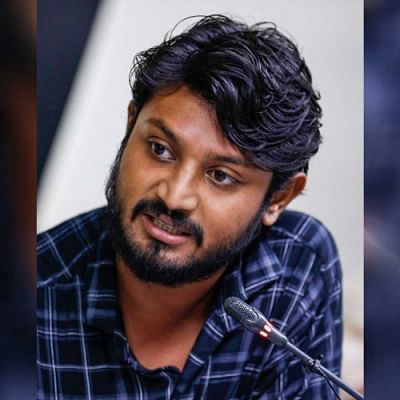
It is the government's duty to ensure that individuals of all faiths are protected."
Sabah Anjim Farabi, Organiser, BRAC University
When discussing religion-based politics, it's crucial to consider the role of religion itself. As a Muslim, I speak from an Islamic perspective, which teaches that Islam does not condone interference in the practice of other religions. It is the government's duty to ensure that individuals of all faiths are protected, and if the government fails in this responsibility, it should be held accountable.
It's crucial to recognise that no politics is entirely free from religious influence. The Awami League centres its politics around Mujib-dharma, the BNP around Zia-dharma, and Jamaat-e-Islami on Islam-based principles. Every political party, in some way, adheres to its own 'dharma' globally. Even those who are anti-religion in their politics can inadvertently create a new form of ideological influence.
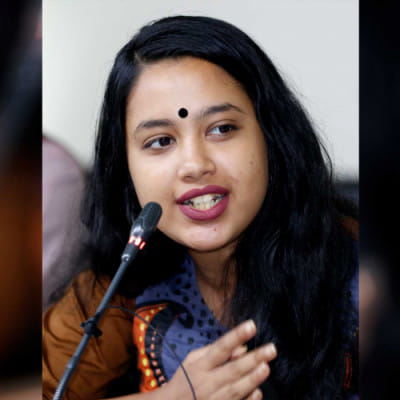
"Political parties based on religious ideologies often promote extremism and are prone to rejecting differing viewpoints."
Prapti Taposhi, Organiser, Jahangirnagar University
Political parties based on religious ideologies often promote extremism and are prone to rejecting differing viewpoints. This issue is compounded in countries with an official state religion, where those who align with the national religion and engage in its politics can come into conflict with the principles of secularism, which advocates for tolerance and inclusivity. Such a bias towards a particular religion can limit representation for others. While everyone should have the right to participate in politics, it is vital for political parties to embrace inclusivity.
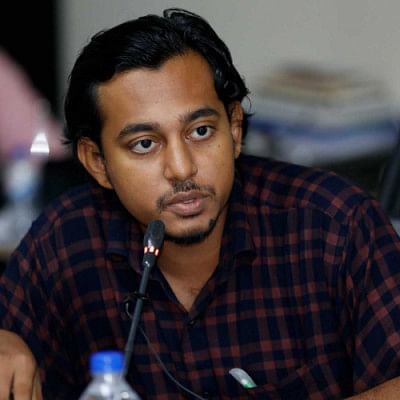
"By adopting an inclusive mindset, the state would naturally evolve from the community rather than imposing itself upon individuals."
Arif Sohel, Organiser, Jahangirnagar University
The concept of religion-based politics is often misunderstood. Political parties that are associated with religion-based politics frequently advocate for theocracy, yet religion encompasses more than just theocratic rule; some might describe their approach as Shariati politics. Additionally, Maulana Bhashani's politics, rooted in Hukumat-e-Rabbania, played a crucial role in Bangladesh's independence.
By adopting an inclusive mindset, the state would naturally evolve from the community rather than imposing itself upon individuals. This inclusiveness would be reflected in both rural and urban areas, continuing a tradition of coexistence. Communities can overcome the limitations of theocracies focused on specific rituals or obligations. History demonstrates that genocide has occurred in the name of both religion and secularism, underscoring the need to critically evaluate political systems that lack inclusivity.
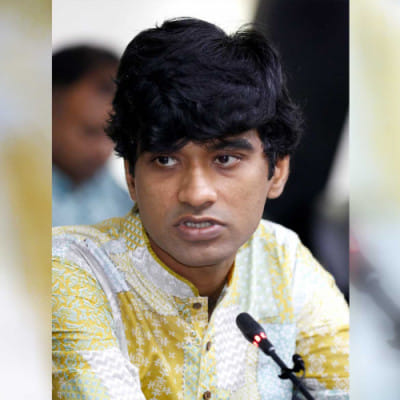
"It is crucial to recognise that the longstanding policy of banning these parties has been ineffective."
Meghmallar Basu, Organiser, Dhaka University
In theory, religion-based politics could be progressive, as illustrated by the Maulana Bhashani's politics. However, in Bangladesh, parties like Jamaat-e-Islami and Khilafat Majlis, which engage in religion-based politics, often present themselves as protectors. This raises the question of why individuals from other religious communities would seek protection rather than equality.
It is crucial to recognise that the longstanding policy of banning these parties has been ineffective. Despite 15 years of repression, Jamaat-e-Islami has not disappeared; rather, such repression often enhances the party's image as a symbol of resistance. In the 1980s, Shibir was not banned outright but was challenged through a collective agreement among active student parties, despite their differing views. They reached a consensus to exclude such politics from campus, and any attempts by Shibir to enter were collectively thwarted. It represented both a social and political struggle.
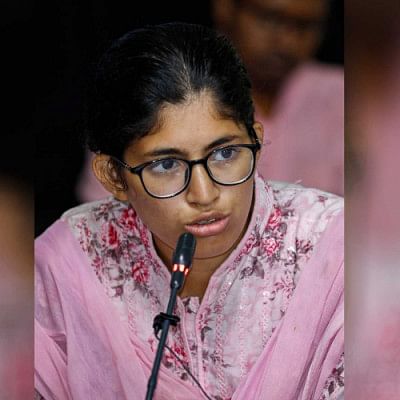
"This religion-based politics is not grounded in genuine religious philosophy; instead, it functions merely as a tool for securing votes."
Umama Fatema, Organiser, Dhaka University
When we scrutinise the religious parties in Bangladesh, we find that they are not fundamentally different from the AL or BNP, aside from some linguistic differences. Since most people are religiously inclined, these parties exploit religious rhetoric to build their voter base. This religion-based politics is not grounded in genuine religious philosophy; instead, it functions merely as a tool for securing votes. Moreover, it seems that religion is being weaponised by political parties to suppress others through its rules and rituals.
While some city-based study groups discuss concepts like Pranbad or Stewardship, these ideas have minimal presence in rural areas. Given the state's repressive nature, a shift in governance could create a genuine space for discussions on religion-based politics, fostering more meaningful engagement. People should have the freedom to choose which ideas they accept.
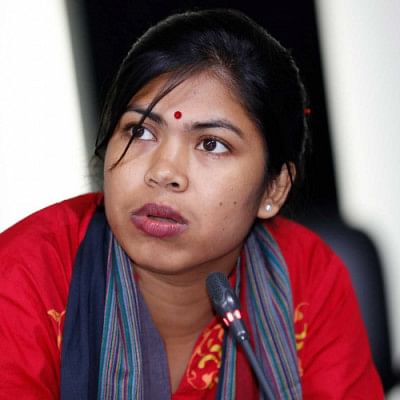
"Our objective should be to unite as Bangladeshi citizens, ensuring equal rights for everyone without categorisation."
Nazifa Jannat, Organiser, East West University
Labeling groups as majorities or minorities fosters a sense of otherness, impacting indigenous people, dalits, transgender individuals, and others. Our objective should be to unite as Bangladeshi citizens, ensuring equal rights for everyone without categorisation. We all belong to this country equally, with equal rights and opportunities.
In 2024, mass murders occurred, where students, youths, and the elderly people were killed by state apparatus under the Awami League government. However, we must not forget the events of 1971 or alter the established historical narrative. While condemning the 2024 mass murders, it's also important not to forget Jamaat-e-Islami's role as war criminals in 1971.
We are not calling for a ban on religion-based politics. However, the party responsible for war crimes in 1971 must address its past actions before participating in politics and elections.
Views were expressed at a roundtable at The Daily Star with students from various universities across the country, who led the quota reform movement.

 For all latest news, follow The Daily Star's Google News channel.
For all latest news, follow The Daily Star's Google News channel. 



Comments